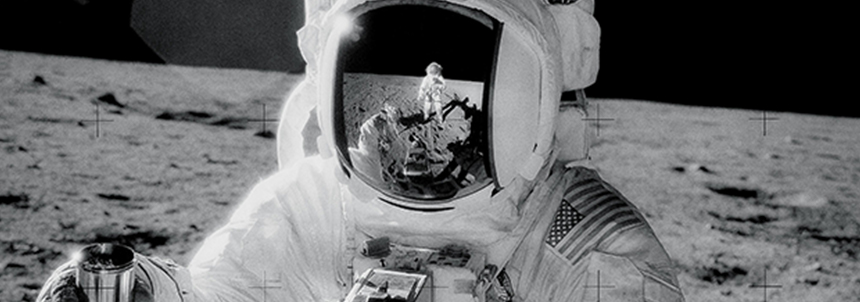
The Apollo Era was marked by towering achievements in science, engineering, and space exploration. Those achievements were the culmination of the work of more than 400,000 talented people over a decade and produced volumes of valuable information, as relevant now as it was 50 years ago. APPEL Knowledge Services, working with the NASA CKOs and knowledge community, has created this resource to assist researchers, facilitators, and the technical workforce learn from this rich history.
NAVIGATE THE PAGE
|
Articles and Publications
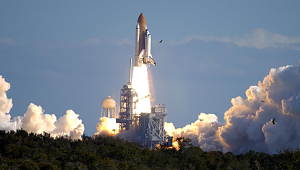 Apollo, Challenger, Columbia Lessons Learned Program
Apollo, Challenger, Columbia Lessons Learned Program
NASA’s Apollo, Challenger, Columbia Lessons Learned Program (ACCLLP) shares the difficult lessons of the past to help ensure future mission success.
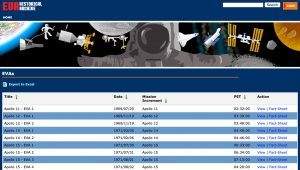 Apollo EVA Fact Sheets (NASA Only)
Apollo EVA Fact Sheets (NASA Only)
A series of documents that provide details and facts, including dates of launches, Moon walks, spacesuit information, definitions of acronyms, and information about hundreds of activities surrounding the spacewalks.
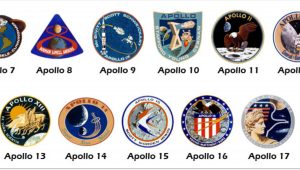 Apollo Flight Journal
Apollo Flight Journal
Presently covers eleven human flights of the Apollo program, relating the parts of the missions not on the lunar surface. As a “living document” it will continue to grow and evolve.
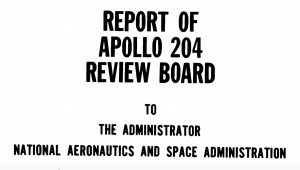 Apollo I: Apollo 204 Review Board Final Report
Apollo I: Apollo 204 Review Board Final Report
The Final Review Document for Apollo 204 as performed by the Apollo Review Board.
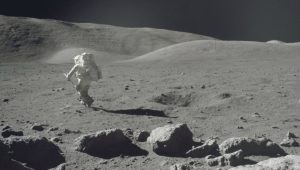 Apollo Lunar Surface Journal
Apollo Lunar Surface Journal
Record of the lunar surface operations conducted by the six pairs of astronauts who landed on the Moon from 1969 through 1972.
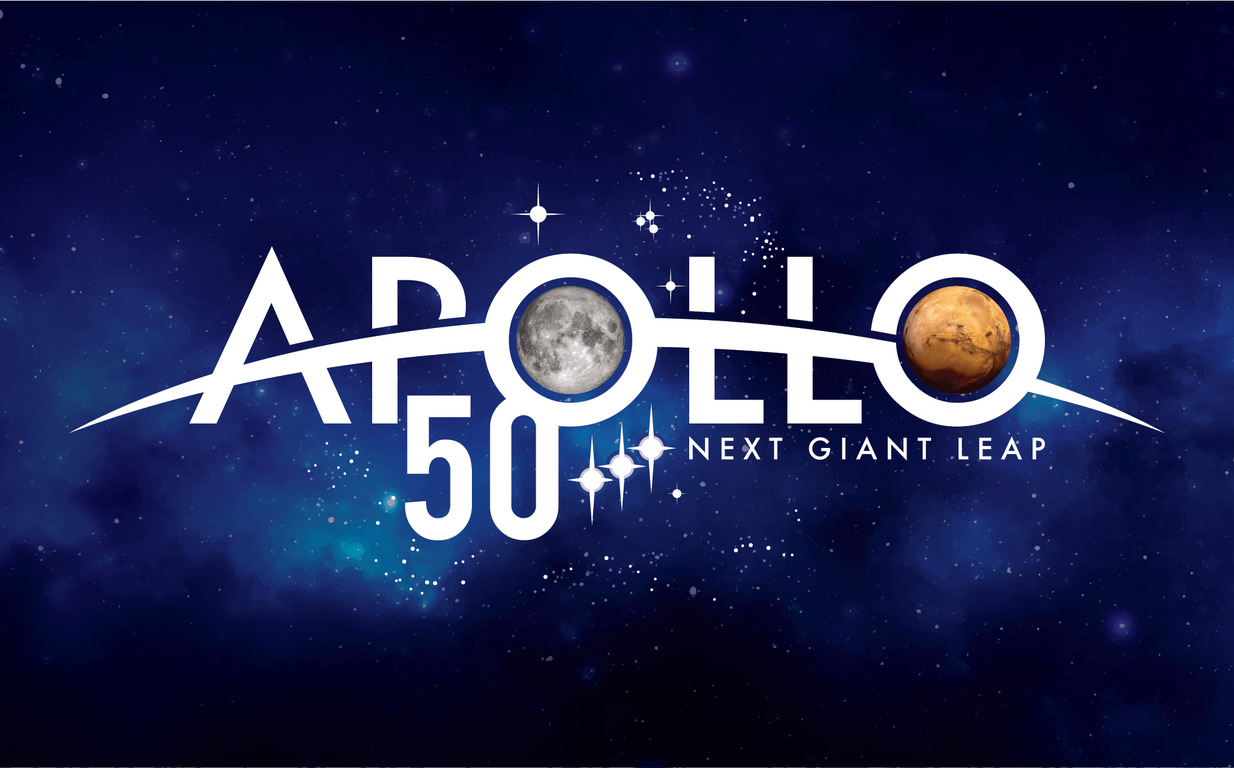 Apollo Resources from within the Langley Technical Library (NASA Only)
Apollo Resources from within the Langley Technical Library (NASA Only)
Links to Apollo resources that were collected as part of the 50th anniversary of the first manned lunar landing.
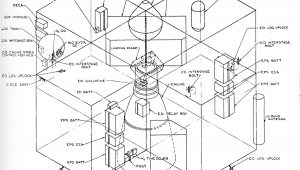 Apollo XIII Mission Documents
Apollo XIII Mission Documents
Collection of Apollo 13 mission documents.
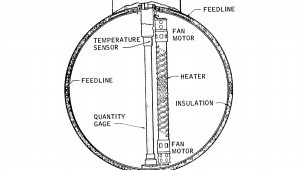 Apollo XIII: Report of the Apollo 13 Review Board Appendix A
Apollo XIII: Report of the Apollo 13 Review Board Appendix A
Review Board’s Appendix document with additional technical findings, schematics, and images of Apollo 13.
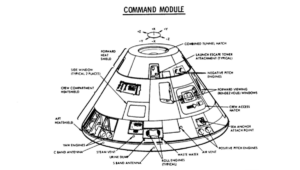 Apollo XIII: Report of the Apollo 13 Review Board Appendix B, C, D & E
Apollo XIII: Report of the Apollo 13 Review Board Appendix B, C, D & E
Review Board’s Appendix document with additional technical findings, schematics, and images of Apollo 13.
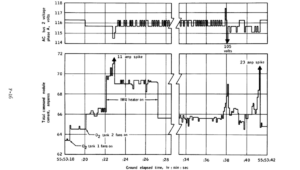 Apollo XIII: Report of the Apollo 13 Review Board Appendix F, G & H
Apollo XIII: Report of the Apollo 13 Review Board Appendix F, G & H
Review Board’s Appendix document with additional technical findings, schematics, and images of Apollo 13.
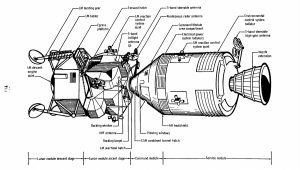 Apollo XIII: Review of the Apollo 13 Review Board
Apollo XIII: Review of the Apollo 13 Review Board
The Apollo 13 Review Board was charged with the responsibilities of reviewing the circumstances surrounding the accident, establishing the probable causes of the accident, assessing the effectiveness of flight recovery actions, reporting these findings, and developing recommendations for corrective or other actions.
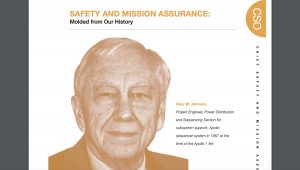 Chief Safety and Mission Assurance Officer Summit–2015 (NASA Only)
Chief Safety and Mission Assurance Officer Summit–2015 (NASA Only)
Overview of the Apollo 1 disaster and lessons learned. Gary Johnson, North American Manufacturing, led the discussion.
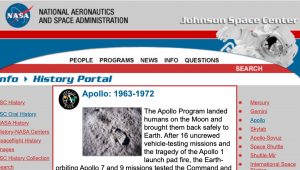 History Collection–Apollo
History Collection–Apollo
The Apollo Program landed humans on the Moon and brought them back safely to Earth. Learn all about NASA’s Apollo missions here.
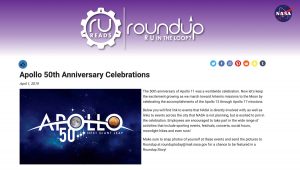 JSC Apollo-era Activities
JSC Apollo-era Activities
Experience the Apollo 11 launch in real time, along with other Apollo videos from links at the bottom of this collection of events at Johnson Space Center and in Houston to celebrate the 50th Anniversary of Apollo 11 and later Apollo missions.
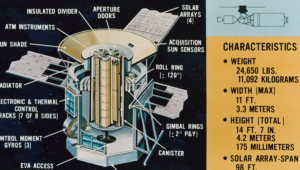 Launch and Space Systems E-library (LaSSe) Sharepoint (NASA Only)
Launch and Space Systems E-library (LaSSe) Sharepoint (NASA Only)
MSFC [Request access to MSFC LaSSe in NAMS]: Web-based, electronic library providing engineers with a single source for historical, current and one-of-a-kind launch, scientific, and research data.
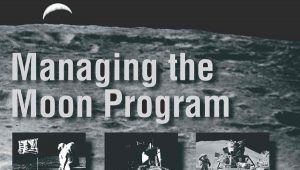 Managing the Moon Program: Lessons Learned From Apollo
Managing the Moon Program: Lessons Learned From Apollo
Proceedings of an Oral History Workshop Conducted July 21, 1989—Monographs in Aerospace History Number 14.
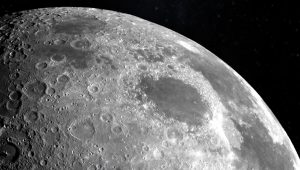 The Apollo Program
The Apollo Program
Journals, articles, websites, reports, chronologies, audio, video, books, memoires, and visual journeys.
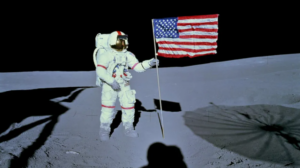 Langley Celebrates Apollo 50th
Langley Celebrates Apollo 50th
Apollo related videos, meeting minutes, plans, and other artifacts and highlights compiled by Langley Research Center’s contributions.
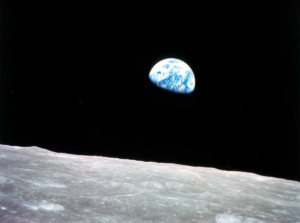 Langley Document and Data Repository (NASA LaRC Only)
Langley Document and Data Repository (NASA LaRC Only)
Full text access to core aerospace documents dating from the late 1800s to the present.
Case Studies
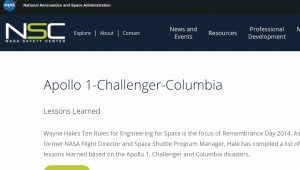 Apollo 1-Challenger-Columbia
Apollo 1-Challenger-Columbia
As former NASA Flight Director and Space Shuttle Program Manager, Wayne Hale has compiled a list of lessons learned based on the Apollo 1, Challenger and Columbia disasters.
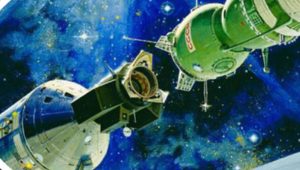 Asynchronicity
Asynchronicity
During descent, the crew of the Apollo-Soyuz mission did not activate the Apollo’s Earth Landing System (ELS) at the correct altitude. As a result, toxic propellant fumes entered the Command Module (CM) through open cabin pressurization valves before splashdown, threatening the lives of America’s first orbital ambassadors.
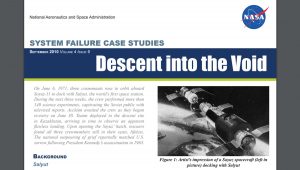 Descent into the Void
Descent into the Void
On June 6, 1971, three cosmonauts rose to orbit aboard Soyuz-11 to dock with Salyut, the world’s first space station. Upon opening the Soyuz’ hatch, rescuers found all three crewmembers still in their seats, lifeless.
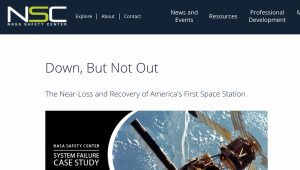 Down, But Not Out
Down, But Not Out
Once Skylab was in orbit and controllers initiated start-up procedures, it became apparent that the vehicle suffered damage during launch. Skylab engineers scrambled to understand what went wrong and what they would do to fix it.
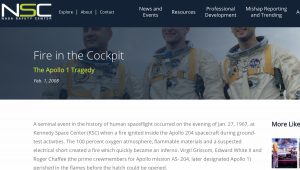 Fire in the Cockpit
Fire in the Cockpit
A seminal event in the history of human spaceflight occurred on the evening of Jan. 27, 1967, at Kennedy Space Center (KSC) when a fire ignited inside the Apollo 204 spacecraft during ground-test activities. The 100 percent oxygen atmosphere, flammable materials and a suspected electrical short created a fire that quickly became an inferno. Virgil Grissom, Edward White II and Roger Chaffee (the prime crewmembers for Apollo mission AS- 204, later designated Apollo 1) perished in the flames.
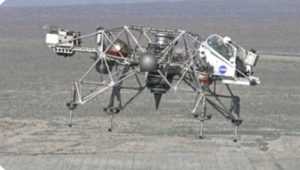 Six Degrees of Freedom
Six Degrees of Freedom
The four-legged Apollo Lunar Modules (LMs) utilized a complex rocket. Apollo astronauts realized they needed new piloting skills to fly and land the Apollo LM in the lunar environment.
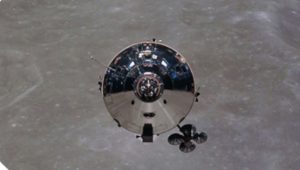 The Human Interface
The Human Interface
During Apollo 10 and Skylab 4, crews suffered from human factors related incidents.
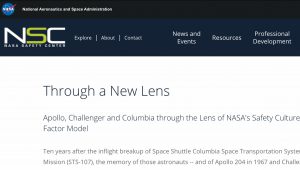 Through a New Lens
Through a New Lens
Ten years after the inflight breakup of Space Shuttle Columbia Space Transportation System Mission (STS-107), the memory of those astronauts–and of Apollo 204 in 1967 and Challenger in 1986–who died in the line of service continues to serve as a reminder to the agency.
Media Gallery
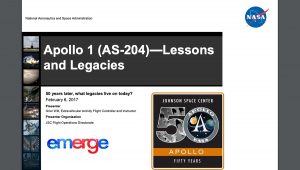 Apollo 1 (AS-204) — Lessons and Legacies (NASA Only)
Apollo 1 (AS-204) — Lessons and Legacies (NASA Only)
January 27, 2017 marked the 50th anniversary of the Apollo 1 fire. The NASA Safety Center hosted a session outlining the changes instituted as a result of the disaster and NASA’s safety cultural has greatly improved as a result of the lessons learned from the tragedy.
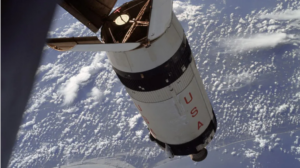 JSC Knowledge Online (NASA Only)
JSC Knowledge Online (NASA Only)
Panel discussions at Johnson Space Center including topics on Apollo Engineering Design, Development, and Certification Challenges, Lunar Module Landing Operations, Lunar Science Operations, Lunar Module Development and Operational Issues, Command Module Landing and Recovery Operations.
Note: Type keyword “Apollo” to find Apollo related videos.
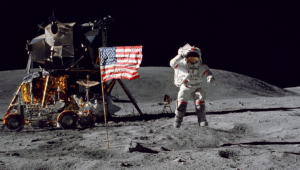 Apollo Storytelling (NASA Only)
Apollo Storytelling (NASA Only)
A collection of videos from various Apollo era events, such as, one on one sessions with astronauts, discussions about space suits, sessions with managers during the Apollo era, etc.
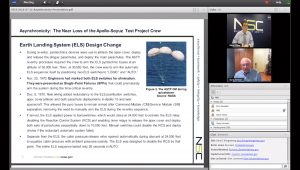 Asynchronicity: The Near Loss of the Apollo-Soyuz Test Project Crew (NASA Only)
Asynchronicity: The Near Loss of the Apollo-Soyuz Test Project Crew (NASA Only)
Asynchronicity: The Near Loss of the Apollo-Soyuz Test Project Crew, features Gary Johnson, former associate director for the Technical Safety and Mission Assurance Directorate (retired).
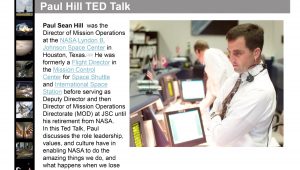 Do Deliberate Leadership Values Matter? (NASA Only)
Do Deliberate Leadership Values Matter? (NASA Only)
This is an inspirational TED Talk by former NASA Director of Mission Operations Paul Hill in which he reminds us as managers and leaders to be “deliberate.”
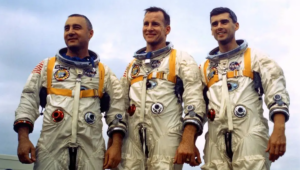 Risky Business: Learning from NASA’s Past Accidents (NASA Only)
Risky Business: Learning from NASA’s Past Accidents (NASA Only)
NASA’s Marshall Space Flight Center’s Shared Experience Forum Series brought Wayne Hale, Jr., former Space Shuttle Program manager, for a special event for Safety and Mission Assurance personnel and the greater NASA community. He discussed the accidents that shaped NASA’s history — Columbia, Challenger, Apollo 13 and Apollo 1 — as well as the mistakes that led to those accidents and how you can avoid making the same mistakes in your career.








